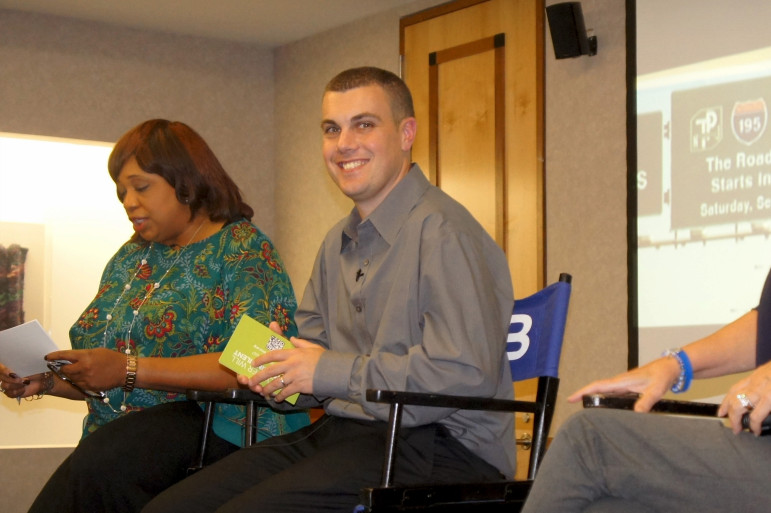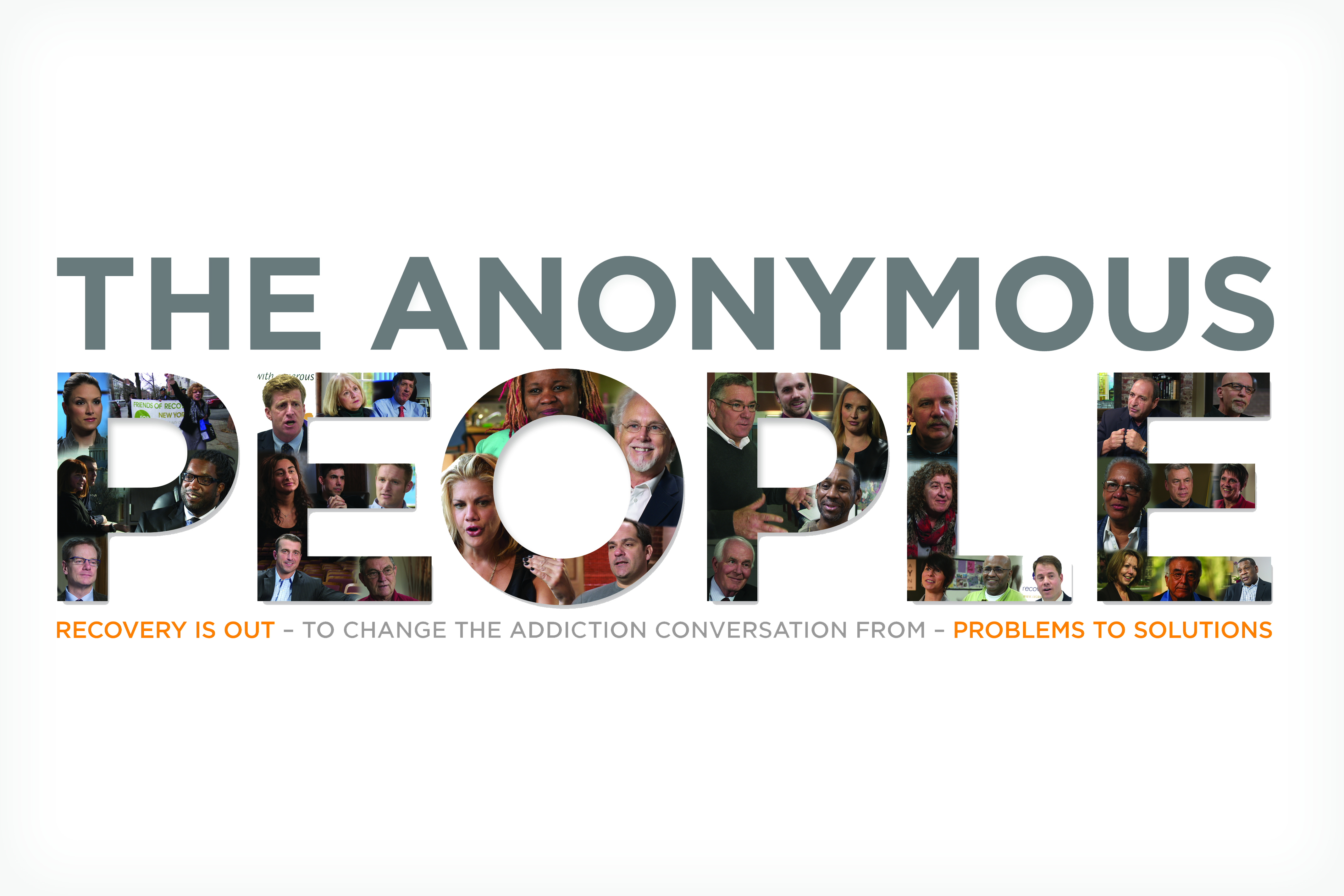
Stell Simonton
Greg Williams (center), director of the documentary film “Anonymous People,” takes part in a discussion after a screening at Georgia Public Broadcasting in Atlanta on Sept. 29.
Greg Williams wants people recovering from addiction to spark a movement by telling their stories. The director of the documentary film “The Anonymous People” is at work on a new film telling the story of how an entire community pulled together to support young people overcome addiction and rebuild their lives.
It focuses on the city of Houston, which has created two “recovery high schools” as part of a network of services.
“We just got really tired of watching kids die,” said Sasha McLean, the director of Archway Academy in Houston, in a segment shot for the film.
It’s difficult enough to go through treatment, she said. “It’s more difficult to leave and come back home where you’re surrounded by the same things that got you in trouble.”
‘Pediatric health crisis’
More than 23 million people in this country are in recovery from addiction, Williams said. The figure is based on survey data from the Partnership for Drug-Free Kids and The New York State Office of Alcoholism and Substance Abuse Services.
An equal number are in the throes of drug addiction, according to the Substance Abuse and Mental Health Services Administration.
“This is a pediatric health crisis,” he said.
Ninety percent of all adults with drug or alcohol problems started using before the age of 18, and half before 15, Williams said. The figure comes from National Center on Addiction and Substance Abuse at Columbia University.
It’s a major public health issue, he said, but it’s treated as a moral failing and the policies are backwards.
Williams sees himself as nurturing a movement that began years ago, but was derailed by the federal War on Drugs, which ballooned in the 1980s.
He sees promise in the college recovery programs that have started on some campuses. They include Augsburg College in Minneapolis, Kennesaw State University (where the Center for Sustainable Journalism is located, which publishes Youth Today) in Atlanta and Texas Tech University in Lubbock, Texas.
These programs help former addicts stay sober in the challenging surroundings of an environment with widespread social use of alcohol and drugs.
Recovery high schools
“The Anonymous People” mentions the recovery high schools that his second film will center on.
Such high schools have been established in 16 states, according to the film. Rather than returning to their former school environment, kids in recovery can get support within a school that includes therapists, substance abuse counselors and other students seeking to be free of addiction.
Recovery community centers are also a powerful tool.
“Community is the backbone of the recovery movement,” Williams said. [Some] people initiate recovery in treatment centers, but they recover in community, he said.
In the current system, [people with addiction] get initial treatment and then they’re on their own, he said. What they need is the kind of long-term support that is provided for other chronic health conditions such as [heart disease] and diabetes.
In addition, prisons are filled with people who should be in treatment centers, Williams said. Addiction should be a public health issue instead of a criminal justice one, he said.
He sees promise in the legislation for the Comprehensive Addiction and Recovery Act, now in Congress, which would provide resources to state and local governments.
Williams and Jeff Reilly of Face First Films are raising money for the new film, to be called “Generation Found.”
‘Sell recovery’
Williams believes change is pushed when numerous people come forward to tell of their recovery from addiction.
“We sell addiction in our culture — on billboards, on TV,” he said. “We don’t really sell recovery.”
Selling recovery involves moving away from the shame and secrecy that often surround recovering addicts.
“Our stories have power,” Williams said. “Tell people.”
You never know the ripple effect, he said.
“It’s what actually changes people’s perceptions.”


























